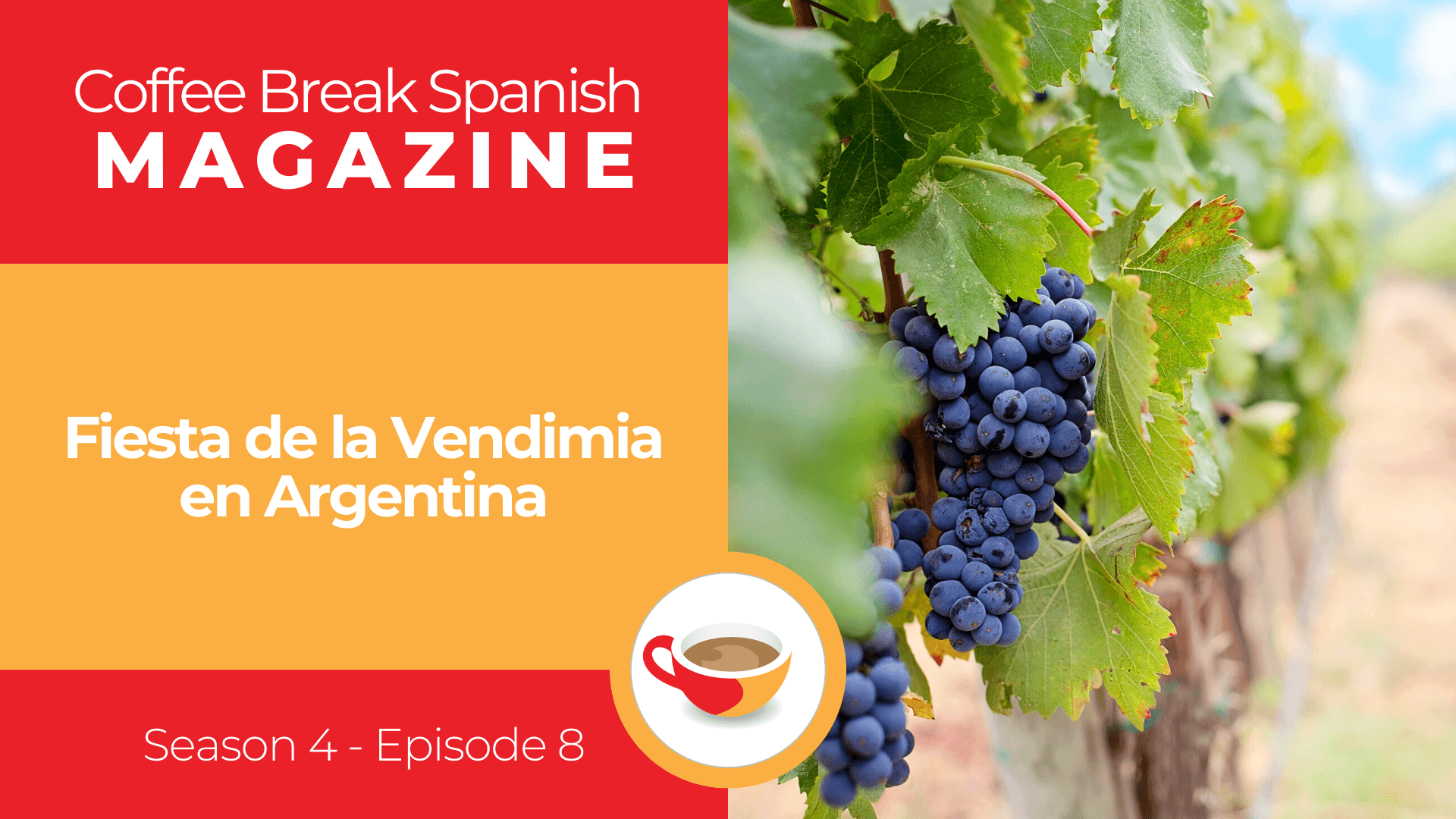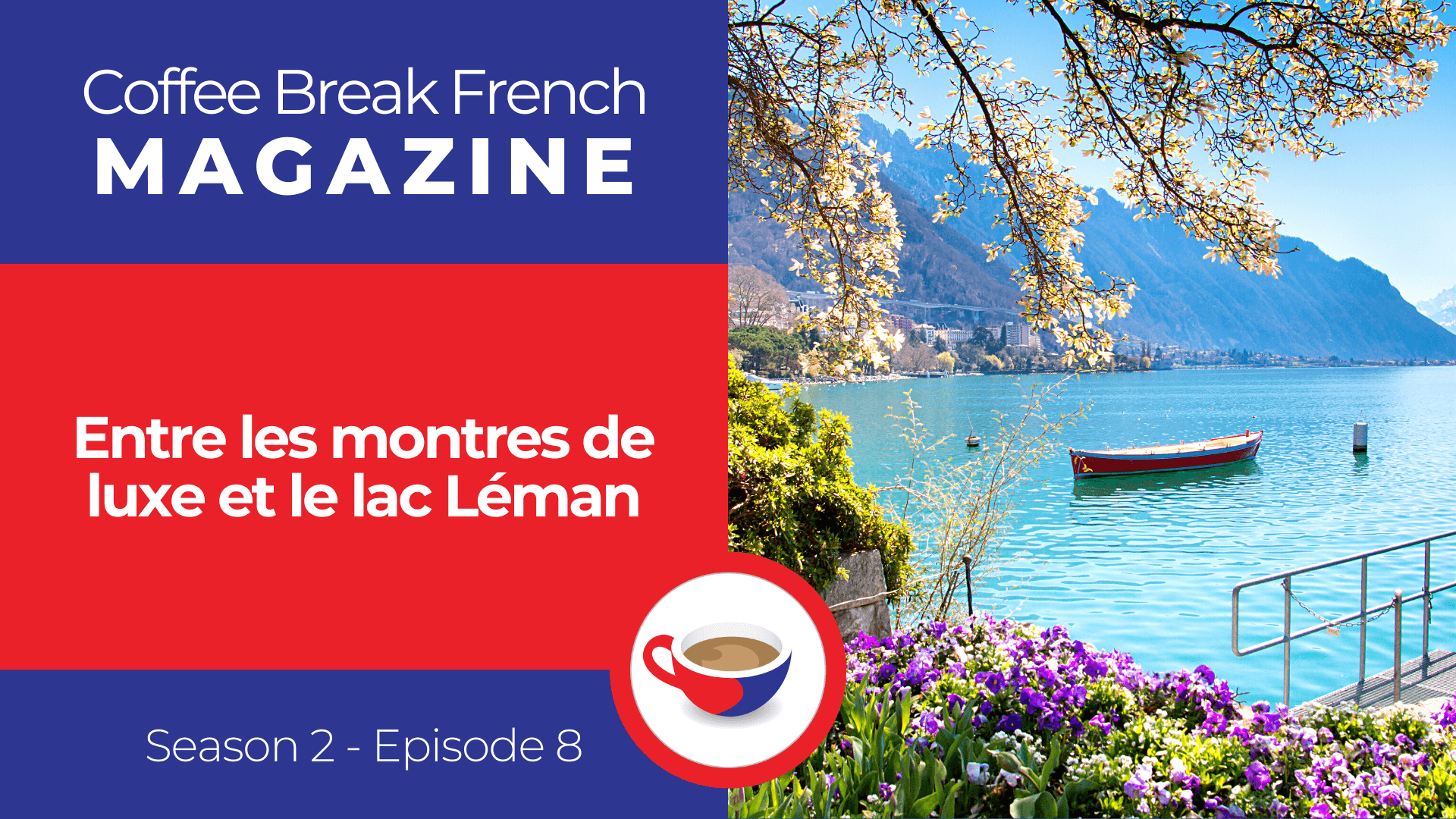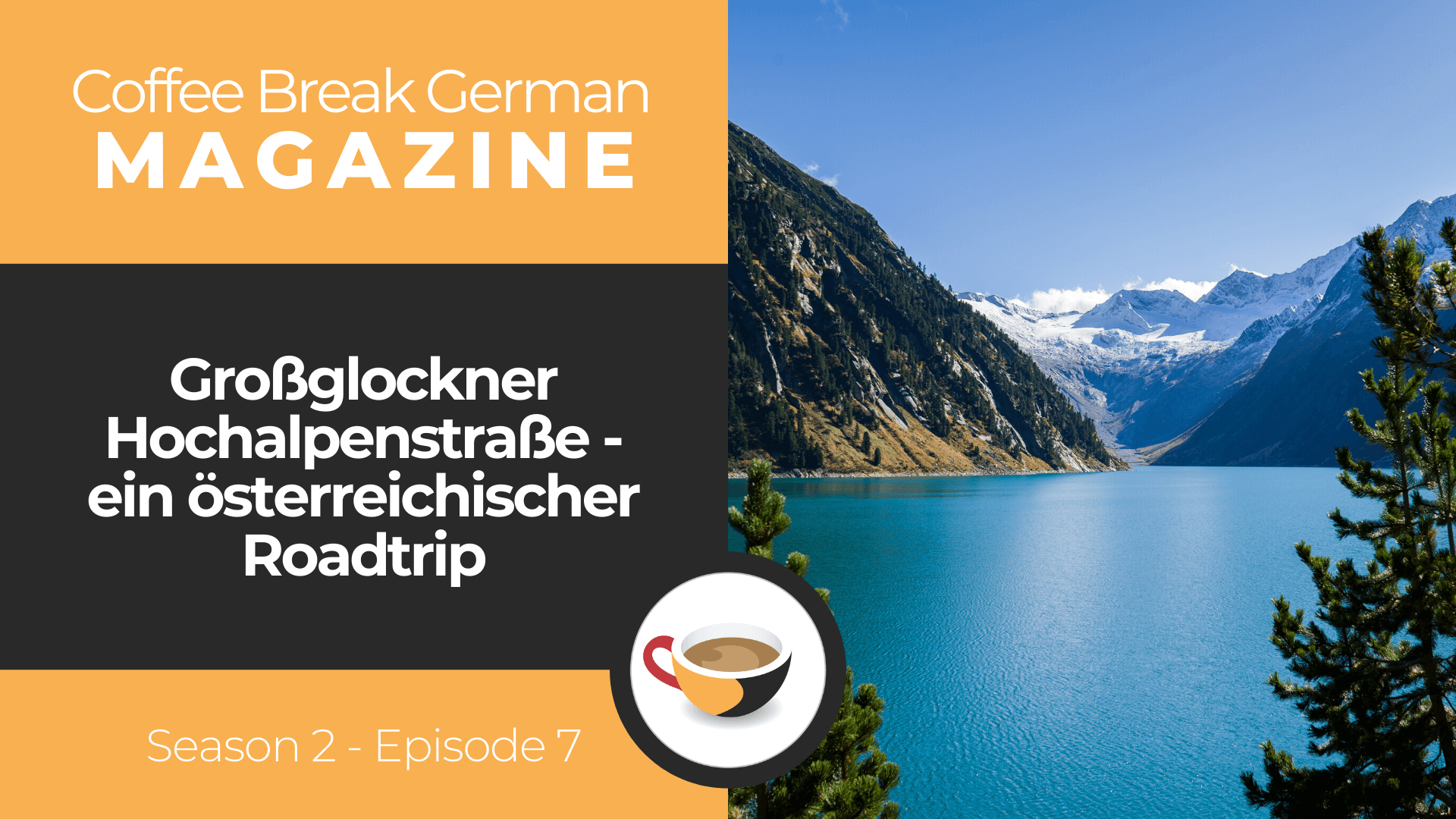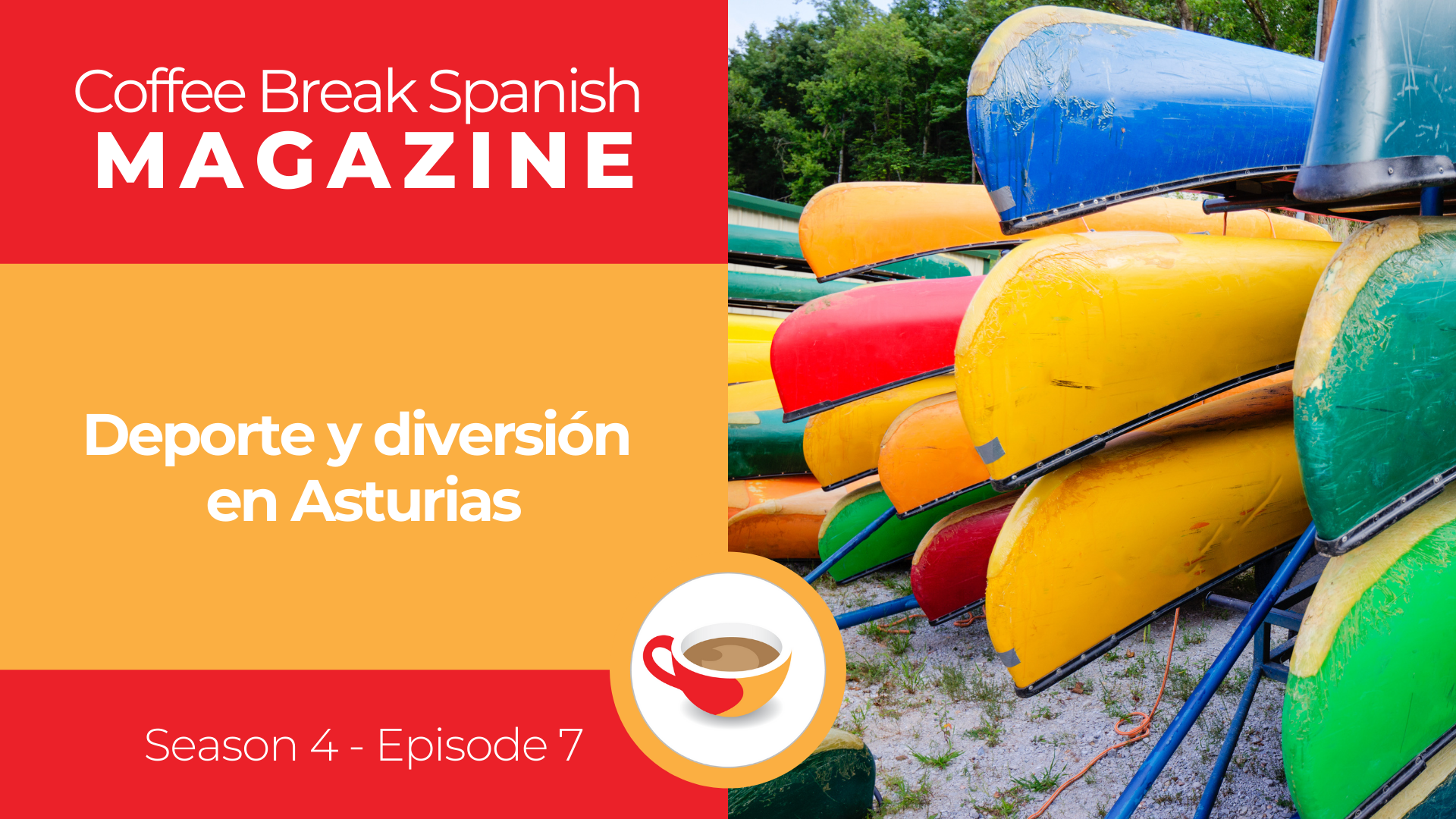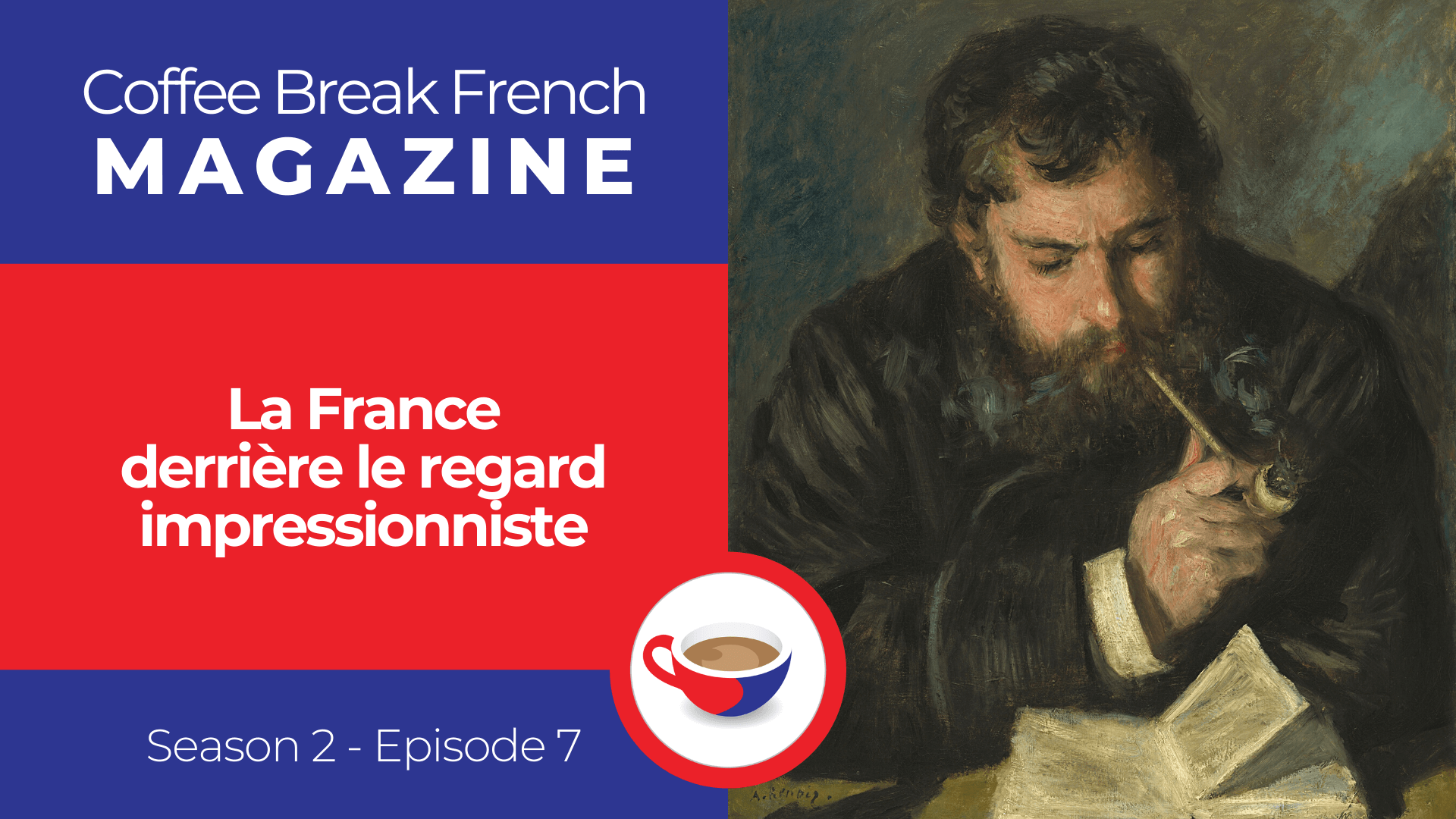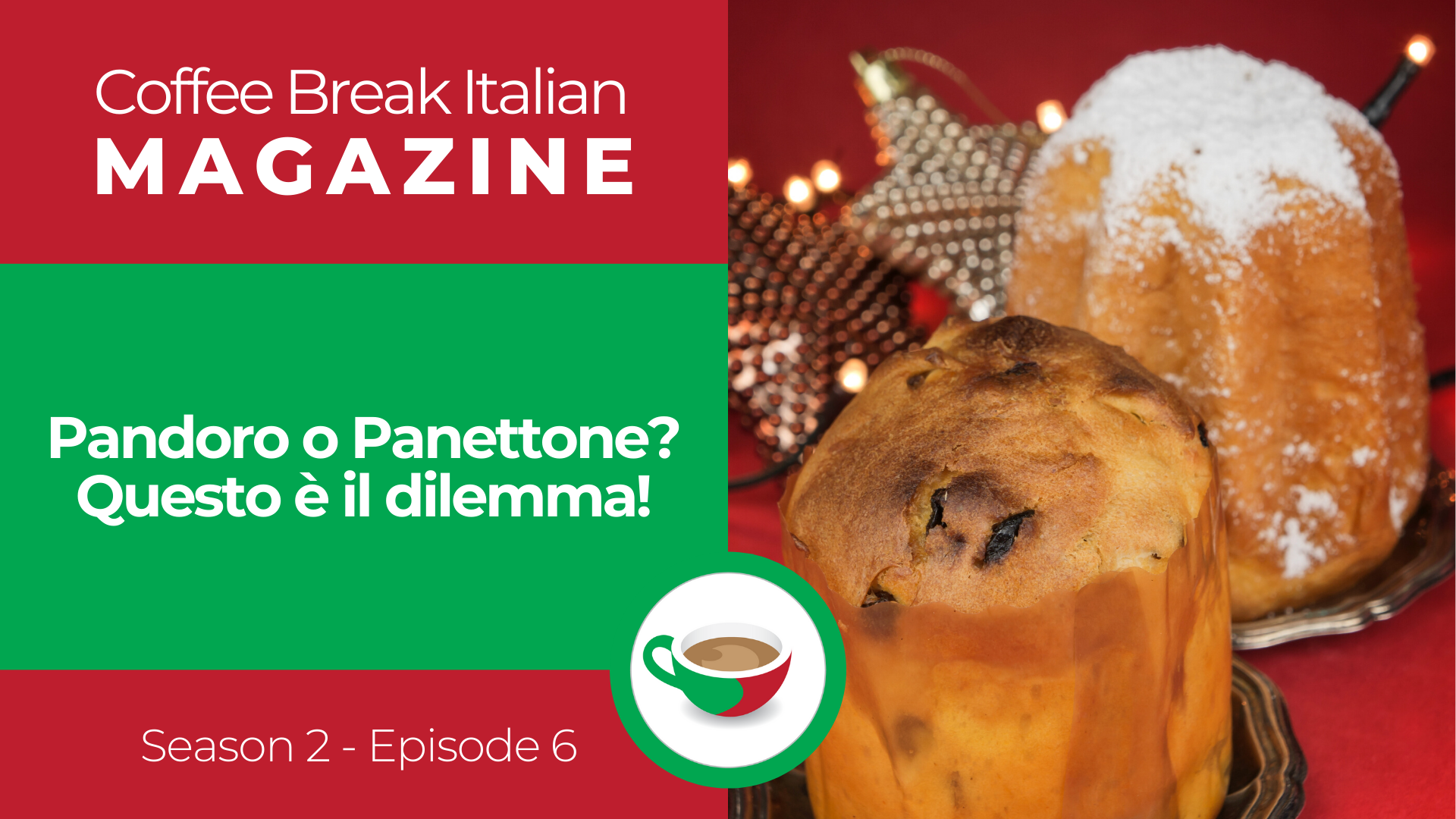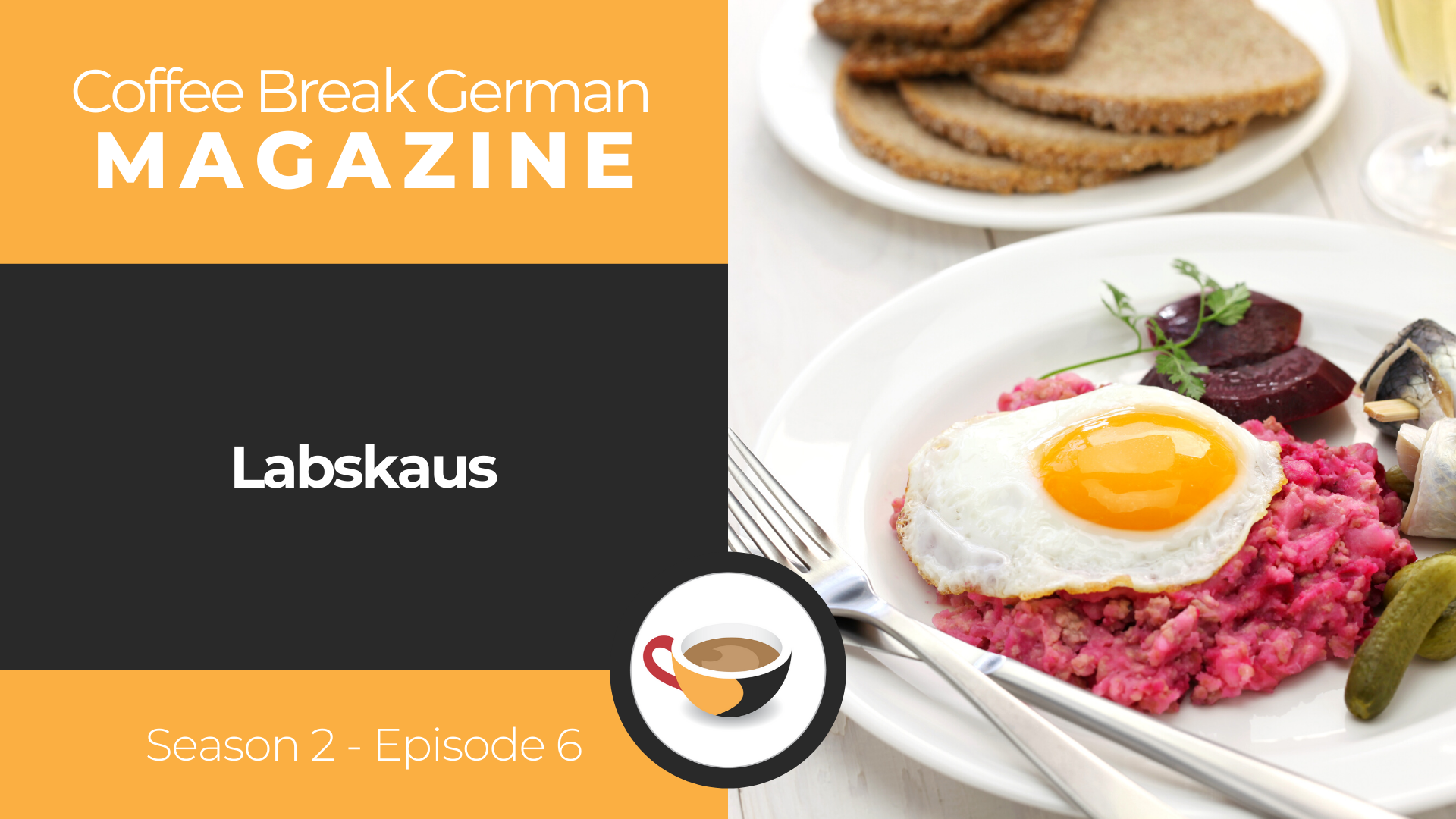The latest episode of Coffee Break Italian we’re introducing a new past tense – the trapassato prossimo, also referred to as the “pluperfect”. Listen out for some handy phrases including: essere a pezzi, a proposito and ci sto! Don’t miss our ancora una cosina at the end of the episode.
Month: July 2022
CBG 3.19 | Causative Adverbs | Also los nach dem Pieps
Welcome to another episode of Coffee Break German! In Lesson 19 Mark and Andrea discuss adverbs which connect clauses: daher, deswegen, deshalb, darum, also, folglich, demzufolge and somit. We then listen to three separate voicemails in which we hear causative adverbs in context. Listen out for these useful words and phrases: etwas hinterlassen, die Rückrufnummer, unterwegs sein.
CBS Mag 4.08 | Fiesta de la Vendimia en Argentina
In this episode of the Coffee Break Spanish Magazine we’re talking about grape harvesting in Argentina! We learn how to create adverbs ending in -mente, and familiarise ourselves with the structure: continuar + gerund. We also hear a variety of verbs including alabar and constar de before Mark and Marina discuss la Guinda del pastel.
CBF Mag 2.08 | Entre les montres de luxe et le lac Léman
In this episode of the Coffee Break French Magazine, we’re transporting you to the city of Geneva. While hearing about what this wonderful Swiss city has to offer, we cover some interesting grammar points such as the agreement of tel(le) que and the use of être assis(e) à + infinitive. Sophie joins Mark at the end of the episode to discuss some time-related expressions including depuis la nuit des temps and en un rien de temps.
CBI Mag 2.07 | Dante: il padre della lingua italiana
The topic of this Coffee Break Italian Magazine episode is the life and work of Italy’s greatest poet and ‘father’ of the Italian language: Dante Alighieri. We review various grammar points in this episode, including: the historical present, relative superlative adjectives, the passive with venire and si passivante. Be sure to listen until the end of the episode to hear our ciliegina sulla torta.
CBG Mag 2.07 | Großglockner Hochalpenstraße – ein österreichischer Roadtrip
In the latest instalment of the Coffee Break German Magazine, we’re heading on a road trip in the Austrian Alps! Throughout the text featured in this episode, we explore the Großglockner Hochalpenstraße – a scenic mountain road and one of Austria’s main attractions – while taking note of the interesting language points, including: adjectives, the infinitive with zu and sowohl als auch. Listen until the end of the episode to master our tricky tongue twister which will impress your German-speaking friends!
CBI 3.18 | Irregular plurals | Vacanze in Turchia
In this episode of Coffee Break Italian we’re covering the topic of irregular plurals both in terms of nouns and adjectives. In the dialogue featured in this lesson, Elisa meets her friend and tells her about her recent summer holiday in Turkey. She mentions the topics of food, methods of transport and a cycling injury. Listen out for the following words and phrases: filare liscio, ginocchia and guadagnare. To round off the episode we hear a very interesting way to describe the city of Padova in Italy.
CBG 3.18 | Reflexive verbs with the Dative | Das werde ich mir merken
Welcome to another lesson of Coffee Break German! This time, we are introducing reflexive verbs with reflexive pronouns in the dative. We hear these learning points in context during a discussion between characters Tim and Anna. Some words and phrases to listen out for include: sich die Nacht um die Ohren schlagen, sich etwas aus … machen and sich Zeit lassen.
CBS Mag 4.07 | Deporte y diversión en Asturias
Welcome to another episode of the Coffee Break Spanish Magazine! This time, we discuss a text about a canoeing festival which takes place in Asturias every year. While hearing about the festival throughout the text, Mark and Anabel, discuss the grammar points which appear and explain the key vocabulary. We learn about the difference between saber and conocer; the verb interesar, and the meaning of – azo, in words like planazo, bombazo and cochazo. Marina joins Mark at the very end of the episode to discuss this week’s guinda del pastel.
CBF Mag 2.07 | La France derrière le regard impressionniste
The topic of this episode of the Coffee Break French Magazine is French painter and founder of impressionist painting, Claude Monet. As we hear about his life and work throughout the text, Mark and Pierre-Benoît focus on the language used before Sophie joins Mark to discuss some interesting quotations by Pissarro. We also hear examples of perfect and imperfect tenses; direct and indirect object pronouns; and the pluperfect tense with the auxiliary verbs avoir and être. Some expressions to listen out for include: ne pas avoir bon caractère and initier qqn à qqch.
CBI Mag 2.06 | Pandoro o Panettone? Questo è il dilemma!
Pandoro o Panettone? That is the question Mark and Francesca are discussing in this episode of the Coffee Break Italian Magazine! While listening to a text about these traditional Italian Christmas cakes, take note of any new words or phrases you hear, such as tanto che, dibattito infiammato and brevettare. We also learn about the passive structures with venire instead of essere; nonostante + subjunctive; and the irregular noun uovo. Be sure to listen until the end of the episode to hear this week’s ciliegina sulla torta!
CBG Mag 2.06 | Labskaus
We hope you’re hungry as this episode of the Coffee Break German Magazine is all about a traditional North German dish made of potatoes, beef, pickles and beetroot. This used to be a sailor’s dish but today it’s found all over Northern Europe, and there are lots of different variations. This episode will give you the opportunity to brush up on your food-related vocabulary with words such as Gewürzgurke, gepökelt and Spiegelei. Be sure to listen until the end to hear our tongue twister!
CBG 3.17 | Qualifiers | Ich finde ihn ganz nett
In this episode of Coffee Break German Season 3 we are discussing the new topic of qualifying adverbs: sehr, ziemlich, außerordentlich, völlig. We also listen to a conversation between school students Manuela, Tina and Tobias, who are discussing the latest developments at school and what they think of them. Some vocabulary to look out for is; gemütlich, auffallen, es eilig haben and ausgesprochen.



